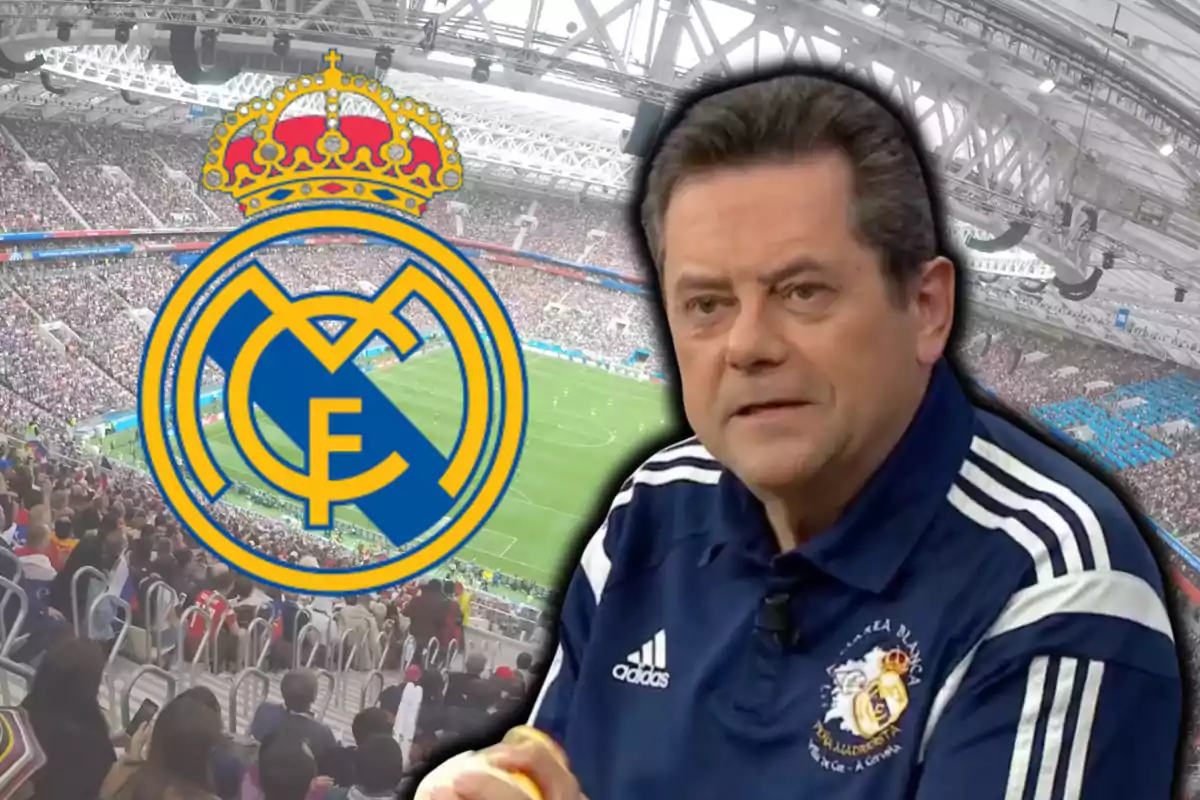Sports journalist Tomás Roncero has made an unexpected and sincere confession. In a recent interview, he admitted to inflating figures in favor of Madrid. "I once wrote that there were 25,000 people when there were only 10,000," he said, laughing.
The anecdote took place during a report for El Mundo Deportivo, years ago. It was a tribute to Goyo Benito, with the stadium almost empty. Roncero, out of passion, doubled the estimated attendance so as not to show a failure. "It was my way of defending the club of my life," he explained.
Roncero is one of the most recognized voices of media Madridism. The question is clear: can an openly biased journalist keep credibility? He doesn't hide it: "I'm from Real Madrid and if someone doesn't like it, tough luck." He repeats it without shame, and he has turned it into his personal brand.

A passionate journalist with millions of followers
Roncero has almost two million followers on Twitter and many haters. Culers, Atléticos, Valencia fans, and Madrid's rivals follow him to criticize him. But also to find out what he'll say after every Merengue victory or defeat.
The Manchego admits that he has had disputes with presidents of the club itself. "I'm not an institutional spokesperson, I'm a critical Madridist when necessary," he states. Even so, he admits to having defended the club, even manipulating minor data in his early days.

From anonymous intern to symbol of media Madridism
Roncero started at the Colpisa agency and then went through El Mundo. During his summers as a correspondent for El Mundo Deportivo, he concealed his Madridism. "I had to gloss over Madrid's crisis a bit so they'd buy my report," he says.
It was then that he allowed himself to alter a fact in favor of the white club. "I couldn't accept that the tribute to my Goyo Benito was a disaster." That day, he decided that emotion weighed more than facts.
An isolated case or something more frequent?
His story opens the door to new questions about the media treatment of Real Madrid. How many journalists have done something similar? How many times have figures, praise, or headlines been "inflated" out of love for the club? In an era where the truthfulness of the media is questioned, this kind of confession has an impact.
When his bosses asked him about the discrepancy in the report, he had an answer. "The weather was so-so, a lot of people went under the stands." That was his justification to explain the fictitious increase in attendance. "This gives us credibility," he even told the outlet. Although the reality was obvious: there were empty seats, but he decided to tell it differently.
The journalist who doesn't hide... but sometimes exaggerates
Roncero doesn't deceive: he's a journalist, but first he's a Madridist. That duality makes him a unique figure in the Spanish media landscape. His style divides, but he never goes unnoticed. Now, by admitting that he exaggerated data out of passion, he fuels the debate even more. Is it possible to be objective when you love a team so much? Or is emotional honesty preferable, even if it borders on the limits of rigor?

